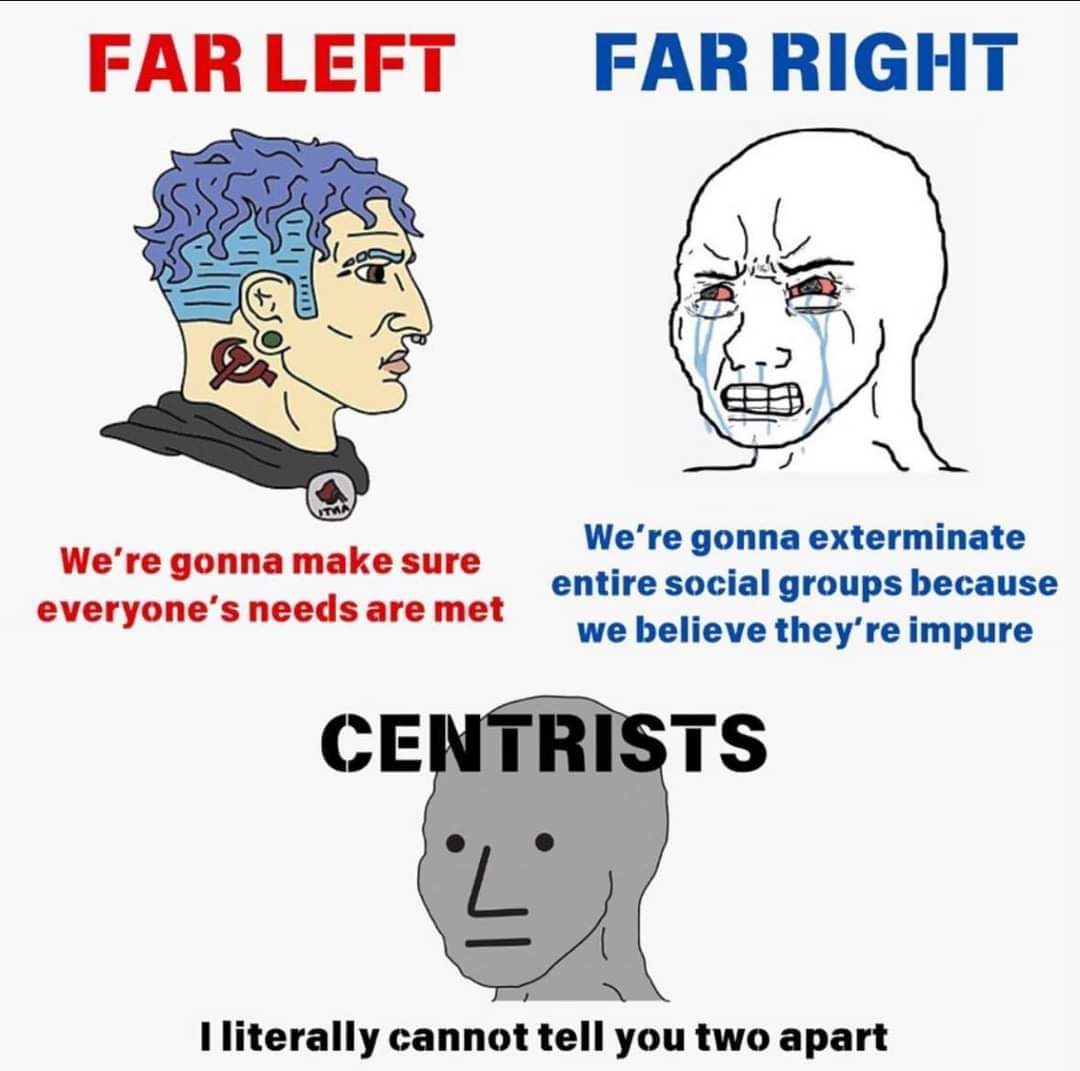this post was submitted on 28 Jul 2024
1140 points (87.4% liked)
Political Memes
5444 readers
3254 users here now
Welcome to politcal memes!
These are our rules:
Be civil
Jokes are okay, but don’t intentionally harass or disturb any member of our community. Sexism, racism and bigotry are not allowed. Good faith argumentation only. No posts discouraging people to vote or shaming people for voting.
No misinformation
Don’t post any intentional misinformation. When asked by mods, provide sources for any claims you make.
Posts should be memes
Random pictures do not qualify as memes. Relevance to politics is required.
No bots, spam or self-promotion
Follow instance rules, ask for your bot to be allowed on this community.
founded 1 year ago
MODERATORS
you are viewing a single comment's thread
view the rest of the comments
view the rest of the comments

Tell me you haven't studied the political structures of Cuba and the USSR since the 60s without telling me you haven't.
While both countries have a high level of concentration of power on bureaucratic elites when it comes to big policy, there were/are a ton of democratic mechanisms that simply don't exist in the west. Extremely high rates of unionization with unions having big decision-making power in the workplaces and outside them, party-membership being encouraged with extremely high rates of it compared to western democracies, neighborhood councils having actual decision-making power both through legal mechanisms and through funding to enact desired local policy... If you want to learn of a particularly interesting instance, you can read the book "how the worker's parliaments saved the Cuban revolution" by Pedro Ross, in which it's detailed how massive democratic participation in the early 90s after the dismantling of the USSR ensured the survival of the country in an astronomical economic crisis.
You also say this as if western countries were democratic at all, as if putting a ballot once every 4-5 years ensured popular decision-making. Study after study show that public support for policy in the west is a terrible predictor of whether that policy is adopted or not, and vice-versa, i.e., public opinion and policy are uncorrelated. The fact that you can't easily point to a particular authority responsible for this, doesn't make the system any more democratic, it just makes it look less authoritarian. Who in France supported the rise of the retirement age? Who in Europe supported austerity policy after the 2008 crisis? What percentage of US citizens don't support socialized healthcare?